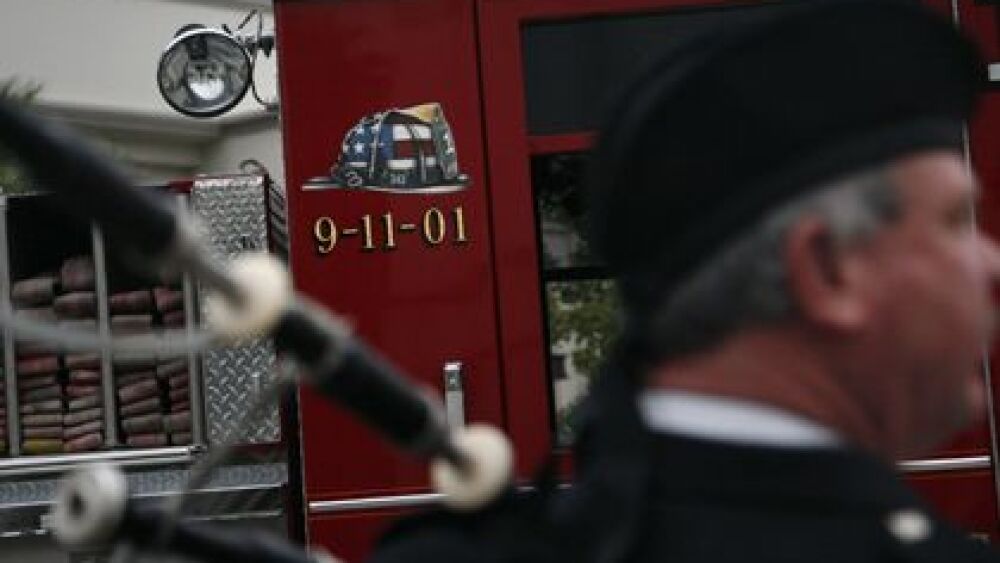By Shelbie Watts, FireRescue1 Editorial Assistant
If you’ve ever been to a firefighter funeral, or even down the street from one, you’ve heard the Great Highland Bagpipe. Their beautiful music captivates the listener and sets the somber tone for another hero being laid to rest.
Like many staples in our society, you may not have even wondered how the Scottish instrument achieved such an integral role at firefighters’ funerals — and other responders for that matter— in the United States.
Turns out, it all started over 170 years ago with the Great Potato Famine.
Irish immigration
After the Great Potato Famine of the 1840s, Irish immigrants flooded to the U.S. and people were not happy about it. The discrimination against the Irish made it hard for the immigrants to find work. Factories and shopkeepers even posted signs reading “NINA,” or “No Irish Need Apply.”
Oddly enough, some of the only jobs that were easily accessible to the new Americans were the ones that we consider heroic today – firefighters and police officers. To put it frankly, Irish immigrants were able to apply for these positions because of the extreme dangers and the high death toll.
Irish firefighter funerals
Along with their other belongings, the Irish brought their deep-rooted Celtic traditions with them. One of those happened to be the playing of bagpipes at weddings, dances and funerals.
At the time, on-duty deaths were commonplace for firefighters. And because the firefighting industry was heavily saturated with Irish immigrants, an Irish firefighter funeral was a normal occurrence. The families of the fallen firefighter immigrants would pull out all of the traditional stops when one of their own was killed as they would have if they were in Ireland. That included bagpipes.
One source suggests that the somber Irish music also served as a reminder to those who rejected that the Irish were protecting the community – and dying in the process.
Eventually, the families of firefighters who were not Irish asked that the bagpipes also be played at their funerals. The tradition soon became engrained in our society as the melancholy soundtrack to the funerals of our fallen heroes.
Why Scottish bagpipes?
The answer to why the Great Highland bagpipes are used over the traditional Irish uilleann pipes is easy – they’re a lot louder when playing the traditional hymns such as “Flowers of the Forest” and “Lament for Children.”
“Amazing Grace” is now a popular hymn for firefighter funerals, but it’s not considered traditional. A group of Scots Guards adapted the hymn to bagpipes when they toured America in the 1970s.
The Emerald Society
The Emerald Society is a group of Irish public safety officers with the main goal of protecting Irish firefighter traditions, as well as keeping the culture alive in other areas of public safety. In true Irish tradition, it was founded on St. Patrick’s Day in 1956. Started in New York, they now have over 7,500 members around the country.
One of their honorable jobs is to serve as the pipers at firefighter and police funerals. They can be seen wearing the traditional Scottish or Irish kilts or just a simple Irish uniform.
Their performance should not only remind us of the hero we lost, but of the immigrants who laid their lives down for a country they had just joined.
This article, originally published in August 2017, has been updated.












